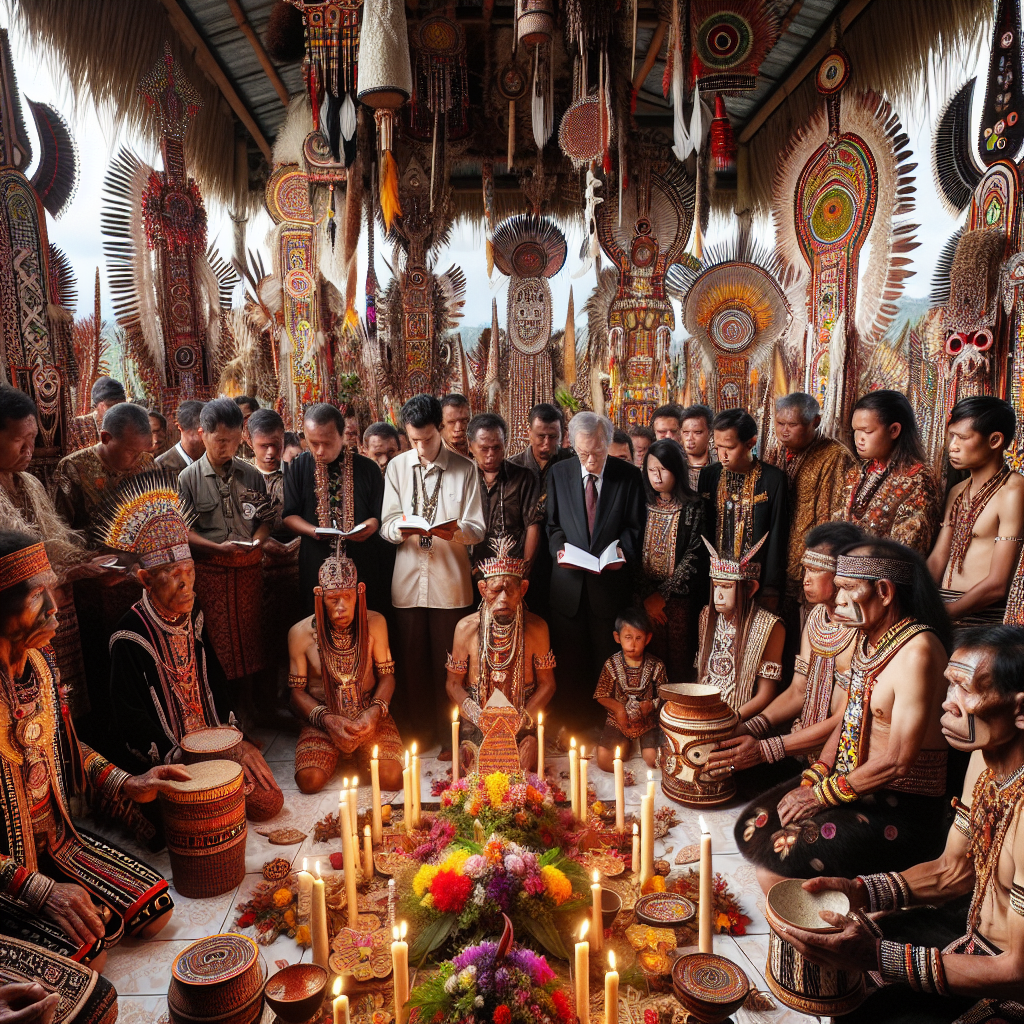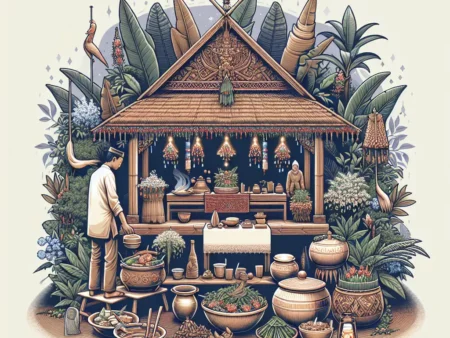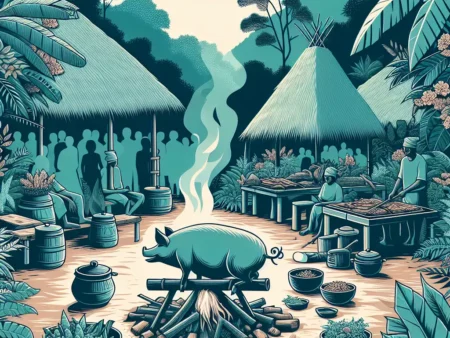Upacara Adat Tiwah: Tradisi Pemakaman Dayak adalah ritual khas suku Dayak yang melibatkan prosesi pemakaman dan penghormatan terhadap leluhur.
Upacara Adat Tiwah: Tradisi Pemakaman Dayak
-
Table of Contents
- Upacara Adat Tiwah: Tradisi Pemakaman Dayak in Indonesia
- Introduction
- The Dayak People: Guardians of Tradition
- Origins of Upacara Adat Tiwah
- The Rituals of Upacara Adat Tiwah
- Preparation and Ritual Cleansing
- Animal Sacrifice and Ritual Feasting
- The Climax: The Burning of the Sandung
- The Cultural Significance of Upacara Adat Tiwah
- Conclusion
Upacara Adat Tiwah: Tradisi Pemakaman Dayak in Indonesia

Introduction
Indonesia is a country known for its rich cultural heritage and diverse traditions. One such tradition that holds great significance among the indigenous Dayak people is the Upacara Adat Tiwah, a unique funeral ceremony that celebrates the life and afterlife of the deceased. This article explores the origins, rituals, and cultural significance of the Upacara Adat Tiwah, shedding light on this fascinating tradition.
The Dayak People: Guardians of Tradition
The Dayak people are the indigenous inhabitants of Borneo, the third-largest island in the world, which is shared by Indonesia, Malaysia, and Brunei. With a population of over 3 million, the Dayak people are known for their deep connection to nature and their rich cultural heritage. They have managed to preserve their traditions and customs despite the encroachment of modernity.
Origins of Upacara Adat Tiwah
The Upacara Adat Tiwah has its roots in the animistic beliefs of the Dayak people. Animism is the belief that all objects, places, and creatures possess a distinct spiritual essence. The Dayak people believe that the soul of the deceased continues to exist even after death and that it needs to be guided to the afterlife.
The word “Tiwah” itself means “to send off” or “to accompany” in the Dayak language. The ceremony is seen as a way to guide the soul of the departed to the spiritual realm and ensure a smooth transition to the afterlife.
The Rituals of Upacara Adat Tiwah
The Upacara Adat Tiwah is a complex and elaborate ceremony that involves several rituals and stages. The entire process can take up to several days, depending on the social status and importance of the deceased.
Preparation and Ritual Cleansing
Prior to the ceremony, the family of the deceased prepares the necessary offerings and gathers the materials required for the rituals. The preparations include the construction of a special tower-like structure called “Sandung” to house the remains of the deceased during the ceremony.
On the day of the ceremony, the family members and close relatives of the deceased gather at the longhouse, a traditional communal dwelling of the Dayak people. The participants undergo a ritual cleansing to purify themselves before the ceremony begins.
Animal Sacrifice and Ritual Feasting
Animal sacrifice is an integral part of the Upacara Adat Tiwah. The Dayak people believe that the sacrificed animals will accompany the soul of the deceased to the afterlife. The type and number of animals sacrificed vary depending on the social status and wealth of the family.
After the animal sacrifice, a ritual feast takes place, where the participants share a meal together. This feast symbolizes the unity and solidarity of the community in supporting the family of the deceased during their time of grief.
The Climax: The Burning of the Sandung
The climax of the Upacara Adat Tiwah is the burning of the Sandung, the tower-like structure that houses the remains of the deceased. The Sandung is set on fire, and as it burns, the soul of the departed is believed to be released and guided to the afterlife.
During this stage, the participants engage in traditional dances, music, and chants to accompany the soul on its journey. The atmosphere is filled with a mix of sorrow and celebration, as the Dayak people believe that death is not the end but a continuation of life in a different form.
The Cultural Significance of Upacara Adat Tiwah
The Upacara Adat Tiwah holds immense cultural significance for the Dayak people. It serves as a way to honor and remember the deceased, ensuring that their memory lives on within the community. The ceremony also reinforces the bonds between family members and strengthens the sense of community among the Dayak people.
Furthermore, the Upacara Adat Tiwah is a way for the Dayak people to assert their cultural identity and preserve their traditions in the face of modernization and external influences. It is a testament to their resilience and determination to maintain their unique way of life.
Conclusion
The Upacara Adat Tiwah is a captivating and deeply meaningful tradition that showcases the cultural richness of the Dayak people in Indonesia. This unique funeral ceremony not only honors the deceased but also strengthens the bonds within the community and preserves the cultural heritage of the Dayak people.
Through the Upacara Adat Tiwah, the Dayak people demonstrate their unwavering commitment to their traditions and their profound respect for the cycle of life and death. It is a celebration of life, a farewell to the departed, and a reminder of the enduring spirit of the Dayak people.







